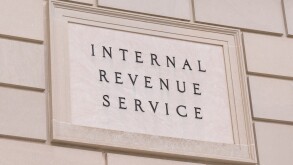On April 2 2020, the Federal Brazilian Tax Authorities (RFB) published Solução de Consulta - Cosit No. 25 / 2020 (dated March 23 2020) providing that revenue relating to commissions generated by a foreign exchange (FX) broker over FX operations realised with a foreigner travelling to Brazil (sale of Brazilian currency - BRL) should be exempt from PIS/COFINS (SC No. 25/2020).
Background
PIS/COFINS are two separate federal contributions levied over gross revenues, at a combined rate of 9.25% under the non-cumulative method and 3.65% following the cumulative method. Separately, PIS/COFINS is also levied over the importation of goods and services pursuant to Law No. 10,865/2004 (PIS/COFINS-import). The ruling discussed below does not address PIS/COFINS-import but is limited to PIS/COFINS over revenue.
The relevant legislation (Law No. 10,637/2002 and Law No. 10,833/2003) along with Provisional Measure No. 2.158-35 contain exemptions from PIS/COFINS, established via a constitutional amendment, for goods and services, in the following cases:
The exportation of goods/products abroad;
The provision of services to individuals or legal entities resident or domiciled abroad, where the payment represents an inflow of funds; and
Sales to commercial exporters for the purpose of exportation.
In summary, SC No. 25/2020 considered a situation involving an FX operator that acquired foreign currency from a foreigner that required Brazilian currency (BRL) for travel to Brazil. Broadly, the decision was required to address the following:
1. Does the purchase of foreign currency from foreign clients arriving in the country (Brazil) meet the requirements for the exemption relating to the exportation of services to individuals or legal entities resident or domiciled abroad?
2. Does the purchase of foreign currency from foreign clients arriving in the country meet the requirement relating to the inflow of funds?
3. Based on the answers to the two questions above, should revenues related to these FX brokerage services be subject to (or not) to PIS and COFINS?
SC No. 25/2020 refers heavily to Normative Legal Opinion No. 1/2018, published October 16 2018 by the RFB, which addresses the issues confronted when considering the concept of an ‘exportation of services’ within the context of the Brazilian tax system, however acknowledges that such definition should be considered with care and only in relation to the taxes/contributions for which complementary or ordinary legislation has not established a different norm/requirement.
In this case, SC No. 25/2020 reiterates that the PIS/COFINS legislation provides an exemption from PIS/COFINS where the recipient of the services is resident or domiciled abroad and the consideration represents an inflow of funds into Brazil. It goes on to conclude that the relevant conditions are met in the present case, on the basis that the provision of currency exchange/FX brokering is considered a service (within the list annexed to Complementary Law No. 116/2003), is being provided to individual residents abroad (foreign tourists) and finally results in an inflow of funds in Brazil, since the exchange transactions are performed by FX brokers authorised to operate by the Central Bank of Brazil.
While a Solução de Consulta does not represent law or a legal precedent, it does provide support and guidance for taxpayers in relation to how the RFB are treating such arrangements. The decision represents welcome news for FX brokers and also provides visibility in relation to how the Normative Legal Opinion No. 1/2018 is being applied by the RFB.
During 2019 and early 2020, the application of PIS/COFINS over exportations has also been the subject of a number of decisions and for this reason, a couple of additional trending issues that were addressed are highlighted.
PIS/COFINS applicable on sale of goods in back-to-back operations
From a Brazilian tax perspective, back-to back operations involving the purchase/sale of goods are triangular relationships, in which there is the purchase and subsequent sale of foreign goods, performed by a company established in Brazil, without the goods physically entering the Brazilian territory. That is, the goods do not pass through the customs process in Brazil and are sent directly from the foreign supplier to the foreign customers, with the Brazilian company performing the buy-sell transaction. It is important to note that the cases under consideration involved actual buy-sell transactions performed by the Brazilian entity, with the entity earning profits on the relevant arbitrage, as opposed to the Brazilian entity being separately remunerated for intermediation (or similar trading) activities.
Recently, in the Superior Court of Justice (STJ) decision (Resp No. 1.651.347-SP, dated September 5 2019), the court concluded (unanimously), that “back to back” operations relating to the purchase and resale of foreign goods/products to foreign customers without the products being ‘nationalised’ should not qualify for the exemption from PIS/COFINS related to the exportation of goods/products (see above) on the basis that the sale of such goods should not constitute an exportation, as the operation did not involve the goods physically exiting Brazil.
This decision was also consistent with the RFB’s previous guidance set out in Solução de Consulta DISIT/SRRF - 08 No. 8059/2017, Solução de Consulta - DISIT/SRRF08 No. 119/2013 and Solução de Consulta DISIT - COSIT No. 306/2017. A common theme from these decisions is while they conclude that the transaction does not fall within the concept of an exportation of goods/products, they do not conclude or provide guidance on the nature of the relevant sale transaction for tax or Brazilian Central Bank purposes.
Following the approach outlined in the decisions, a PIS/COFINS tax leakage may be realised in operating structures involving back-to-back arrangements creating a disincentive for multinational groups to use Brazil as a regional Latin American hub for trading operations.
While the disincentive has been addressed in certain circumstances where there is a physical flow of goods (for example, special custom drawback regime) in many situations, multinational groups may wish to implement a regional trading hub without the goods physically transiting through the trading entity for commercial or logistical reasons. In an international context, in such cases, revenue is often collected by the trading country via appropriate transfer pricing margins as opposed to potentially prohibitive transaction taxes.
From a tax policy perspective, addressing this point may also be helpful with discussions relating to Brazil’s intention to become a member of the OECD.
PIS/COFINS applicable on the export of royalties
On October 11 2019, the RFB published Solução de Consulta – DISIT / SRRF07 No. 7,063/2019 (dated September 30 2019), providing that royalties received from abroad, in payment for the licensing of technology, do not constitute revenue from the sale of goods or from the provision of services, and therefore do not fall within the relevant exemptions to PIS/COFINS. The decision refers to and is consistent with the RFB’s previous guidance in Solução de Consulta – COSIT No. 431/2017.
While the RFB guidance remains consistent, it is important to note that the report accompanying the Project of Law (PEC No. 277/2000) that introduced the relevant constitutional amendments No. 33/2001 (being the amendments ultimately permitting the PIS/COFINS exemption), considered that the amendments providing for the exemption of revenue arising from exports from social contributions to be quite pertinent, and even essential, given the fierce competition in international trade, and that any form of aggregation of taxes to exported goods and services cannot be admitted.
Over the past 20 years since the amendments were passed there have been significant developments in technology and globalisation, with such comments becoming equally relevant for Brazilian companies seeking to access foreign markets that are remunerated in relation to patents, know-how or other technology that does not fall squarely within the goods or services definitions.
Interestingly, the language of the constitutional amendments in 2001 provide for the non-incidence of such contributions over revenues arising from exportations, without further limitation to only services and goods.
Final comments
From a tax policy perspective, it is often considered that tax incentives should be interpreted strictly, applying a literal or legalistic approach rather than a purposive approach that may amplify the effects of the incentives. Further, while it is not the role of the courts (nor the RFB) to rectify drafting flaws and/or necessary updates, the decisions in relation to back-to-back arrangements and the export of royalties highlight the need to at least revisit the tax policy objectives for the PIS/COFINS exemption and if appropriate provoke clear legislative amendments to provide businesses with certainty and clarity regarding such operating structures.
Alvaro Pereira T: +55 11 3674 6526
Mark Conomy
T: +55 11 3674 2002













